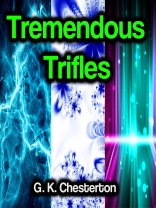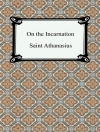Tremendous Trifles G. K. Chesterton – Gilbert Keith Chesterton (1874-1936) was an English literary and social critic, historian, playwright, poet, Catholic theologian, debater, mystery writer and foremost, a novelist. Among the primary achievements of Chesterton’s extensive writing career are the wide range of subjects written about, the large number of genres employed, and the sheer volume of publications produced. He wrote several plays, around 80 books, several hundred poems, some 200 short stories and 4000 essays. Chesterton’s writings without fail displayed wit and a sense of humor by incorporating paradox, yet still making serious comments on the world, government, politics, economics, theology, philosophy and many other topics. Chesterton uses his compilation of essays in ‘Tremendous Trifles’ as a guide to reflect on everyday life. Among this collection: ‘A Piece of Chalk’where a drawing exercise turns into a lesson on the nature of truth, ‘Twelve Men’an explanation on why we have juries made of our peers and not professional jurors, ‘The Dragon’s Grandmother’on why we should read fairy tales to our children along with many more endearing reflections.
Mengenai Pengarang
Gilbert Keith Chesterton was an English writer, philosopher, lay theologian, and literary and art critic.He was educated at St. Pauls, and went to art school at University College London. In 1900, he was asked to contribute a few magazine articles on art criticism, and went on to become one of the most prolific writers of all time. He wrote a hundred books, contributions to 200 more, hundreds of poems, including the epic Ballad of the White Horse, five plays, five novels, and some two hundred short stories, including a popular series featuring the priest-detective, Father Brown. In spite of his literary accomplishments, he considered himself primarily a journalist. He wrote over 4000 newspaper essays, including 30 years worth of weekly columns for the Illustrated London News, and 13 years of weekly columns for the Daily News. He also edited his own newspaper, G.K.s Weekly.Chesterton was equally at ease with literary and social criticism, history, politics, economics, philosophy, and theology.







![perlindungan daripada Brian Schrag & Julisa Rowe: Community Arts for God's Purposes [Chinese] 貼近神心意的社群藝術 perlindungan daripada Brian Schrag & Julisa Rowe: Community Arts for God's Purposes [Chinese] 貼近神心意的社群藝術](https://static.worldofdigitals.com/thumb_webp/740/9781645083740.webp)




